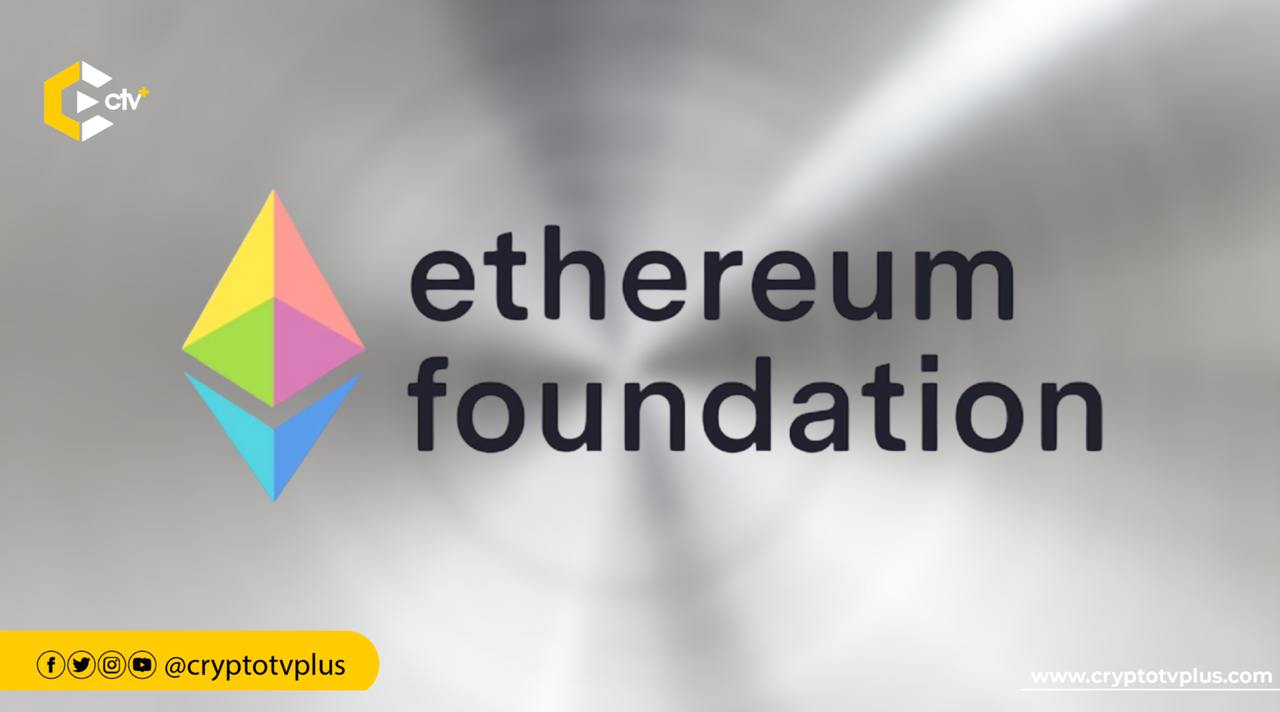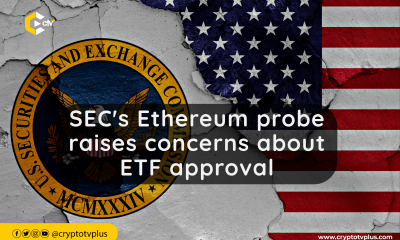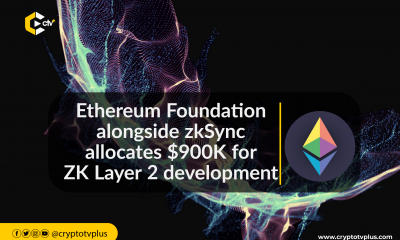News
Aya Miyaguchi transitions to President of Ethereum Foundation

Aya Miyaguchi, who has served as Executive Director of the Ethereum Foundation (EF) for the past seven years, has announced her transition to the role of President.
In this new capacity, she aims to deepen EF’s institutional relationships and expand the reach of Ethereum’s vision and culture.
Miyaguchi expressed her gratitude for the journey so far and reaffirmed her commitment to Ethereum’s core principles.
“Ethereum belongs to everyone precisely because it belongs to no one,” she noted, emphasizing the network’s strength in permissionless innovation and open participation. Her transition comes at a time of significant reflection on Ethereum’s evolution, especially as it continues to navigate debates on performance, governance, and market dynamics.
Miyaguchi outlined Ethereum’s unique role within the broader technological landscape, borrowing from Stewart Brand’s pace-layering model.
She highlighted the need for Ethereum to function across multiple layers. The Ethereum Foundation’s role, she stated, is not to control but to ensure that the network remains a decentralized and open ecosystem.
“The value of credible neutrality doesn’t mean treating everything equally; it means making principled choices that protect Ethereum’s integrity at its core,” she said. She emphasized EF’s “philosophy of subtraction,” a strategy designed to prevent centralization while promoting sustainability. Rather than dominating, EF seeks to empower independent teams.
Over the years, EF has played a key role in Ethereum’s growth by stewarding initiatives rather than controlling them.
Miyaguchi cited examples of this approach, including supporting all Core Dev calls, which enable decentralized technical decision-making; promoting client diversity to ensure resilience against single points of failure; organizing R&D interop retreats to foster breakthroughs through collaboration; initiating key projects like Account Abstraction and cross-L2 coordination, designed to outgrow EF’s involvement; and facilitating The Merge, Ethereum’s historic transition to proof-of-stake, balancing leadership with decentralization.
Reflecting on her seven years at EF, Miyaguchi expressed deep appreciation for the Ethereum community.
“When I first discussed the possibility of transitioning to President with Vitalik a year ago, it was with the intention of continuing to nurture the unique culture of Ethereum and serving as a voice to bridge the gap between Ethereum and the broader global community,” she shared.
Sales of ETH by the EF and community backlash
This comes amid the concerns from the Ethereum community on why the EF’s recent sales of ETH. These transactions, meant to fund operations, have upset many, while Vitalik Buterin, Ethereum’s co-founder, has insisted on leading the response. The situation grew more complicated when a key developer quit, adding fuel to an ongoing debate.
The Ethereum Foundation (EF) has sold significant amounts of ETH to cover expenses like research and developer salaries. In August 2024, it transferred $94 million in ETH to the Kraken exchange, describing this as routine “treasury management.” Then, in January 2025, it moved another $72 million worth to Kraken. These sales frustrated segments of the Ethereum community.
Critics argued that selling large amounts of ETH negatively impacted its price and affected smaller investors. With ETH’s value declining compared to Bitcoin and Solana gaining attention for memecoins, the timing was particularly contentious.
Many questioned why the EF didn’t stake its ETH to earn income instead of selling it, a topic that persisted in discussions.
Vitalik Buterin addressed the criticism directly. In October 2024, he refuted claims of reckless selling, noting he hadn’t sold personal ETH in over a month and that his holdings had even increased.
He defended the EF’s actions, explaining that the sales funded essential work, with past budgets showing 36.5% allocated for new initiatives and 24.9% for core technology.
By January 2025, as calls grew for a leadership change, including replacing EF executive director Aya Miyaguchi with developer Danny Ryan, Vitalik took a firm stand. On January 21, he wrote on X, “The person deciding the new EF leadership team is me. One of the goals of the ongoing reform is to give the EF a ‘proper board,’ but until that happens, it’s me.”
He made it clear he would oversee a year-long restructuring he’d announced days earlier.
Vitalik also expressed frustration with harsh online reactions. Aya faced intense criticism, including offensive posts and threats he called “pure evil.” He warned that such hostility was driving away talent and complicating his efforts.
On the staking question, he said the EF avoided it to steer clear of regulatory risks and remain neutral in potential network disputes. He suggested alternatives, like granting ETH to others who could stake it, to reduce sales without the EF taking a side.
The tension escalated when Eric Conner, a core developer with 11 years at Ethereum, resigned on January 21, 2025. In an X post, he declared, “I am no longer a dot eth,” criticizing the EF’s leadership as inefficient and overly centralized. He specifically questioned Aya’s role, aligning with community voices demanding change.























Pingback: Ethereum's Pectra Upgrade Launches on Holesky Testnet
Pingback: Ethereum Foundation changes leadership to strengthen its future – CryptoTvplus - The Leading Blockchain Media Firm